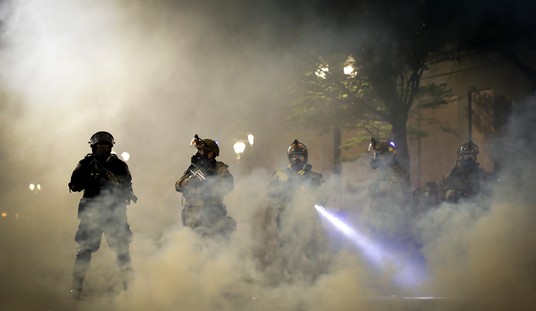A redistricting lawsuit in Pennsylvania filed by the League of Women Voters (LWV) took a sharp turn on Friday afternoon, when attorneys representing the state legislature’s Senate President and Speaker of the House filed a motion to disqualify one of the Pennsylvania Supreme Court Justices for bias and to demand disclosures relating to potential bias from another justice.
The lawsuit challenges the 2011 Congressional districts map drawn by the Pennsylvania General Assembly, which has Republican majorities in both the Senate and House. In its complaint, the LWV seeks to overturn the maps, claiming they are a case of “extreme,” “partisan gerrymandering.”
Republicans currently hold 13 of Pennsylvania’s 18 Congressional seats. With the 2018 midterm elections rapidly approaching, the outcome of this case has the potential to swing not only individual Congressional districts in the Keystone state, but to be a significant factor in whether the Republicans can maintain their majority control of Congress.
The lawsuit made its way up to the Pennsylvania Supreme Court, which agreed to fast-track the case. The Court has seven justices, who are elected in partisan elections. Currently, five of the justices are Democrats and two are Republicans. The court orders in this case have passed on 4-3 votes: one of the Democrat justices, Max Baer, has joined with the two Republican justices in dissenting.
That’s what happened in January, when the Court ruled in another 4-3 decision that the 2011 map was unconstitutional and ordered a new one be drawn before the primary elections in May.
Justice David Wecht, one of the Democrat justices first elected in 2015, is the target of the motion for disqualification. Since the Court’s rulings were 4-3 decisions, his vote was the deciding vote, and accordingly the attorneys filing the motion also asked for the orders to be overturned.
RedState spoke by phone Friday evening to Neal Lesher, spokesman for Pennsylvania Speaker Michael Turzai. According to Lesher, the Court’s January ruling not only said the 2011 maps were unconstitutional, the remedy ordered was unreasonable, allowing only until February 9th for the legislature to draw and submit new maps. If that deadline is not met, the Court stated their intention to redraw the maps themselves, or that they might draw them even if the deadline was met.
A separate appeal has been filed with the United States Supreme Court on this issue, arguing that Pennsylvania law grants the legislature the exclusive power to draw district maps, and therefore it is unconstitutional for the Court to usurp that power from them.
Returning to the issue of Wecht’s alleged bias, the motion filed today sets forth several comments he made while a candidate for the Court, which they claim show he was biased in favor of the LWV’s position, and that he had made up his mind before hearing the case, a violation of their rights to a fair and impartial court.
“The decision to file this motion was not one that was taken lightly,” said Lesher, “However, taken with this clear body of evidence included in our filing today, we felt an obligation to move forward because the bias displayed by Justice Wecht prior to hearing this case is clear.”
A selection of some of the examples cited in the motion of Wecht’s bias:
At a Judge Candidate Forum in Spring 2015, sponsored by Neighborhood Networks and MoveOn Philly, Wecht said (video of this quote begins at approximately the 18:00 mark):
Let me be very clear: Gerrymandering is an absolute abomination. It is a travesty. It is deeply wrong….
These districts have been drawn to disenfranchise the majority of Pennsylvanians. And they have been drawn by skilled political operatives, and it needs to stop. There are a million more Democrats in this Commonwealth—I want to let that sink in—a million more Democrats in this Commonwealth, but there’s a Republican state house, there’s Republican state senate, and there are only 5 Democrats in the Congress, as opposed to 13 Republicans. Think about it. Do we need a new Supreme Court? I think you know the answer.
In a “Get to Know the Candidates for State Supreme Court” forum organized by Lancaster Online, Wecht said (available at Lancaster Online, at time code 35:58):
Stop this insane gerrymandering.
…And we are one of the most gerrymandered states in the nation. And people who are disenfranchised by this gerrymandering abomination eventually lose faith and grow more apathetic, why, because their voting power has been vastly diluted and they tend to figure “well, I can’t make a difference, I’ll just stay home.
Later at that same forum (at time code 38:15), Wecht said:
…[I]n 2014, I believe, there were at least more than 200,000 votes for Democratic candidates for U.S. Congress than Republicans and yet we elected 13 Republicans and 5 Democrats, and there are more than 1,000,000 more Democrats…
I’m not trying to be partisan, but I have to answer your question, frankly–. We have more than a million more democrats in Pennsylvania, we have a state senate and state house that are overwhelmingly Republican. You cannot explain this without partisan gerrymandering. So I don’t have a philosophy other than fidelity to our Constitution, and fidelity to our Constitution does not include drawing lines down the middle of streets or separating neighbors from one another. It doesn’t include carving up municipalities. Our Constitution and its jurisprudence say that we are not supposed to divide up municipalities except where absolutely necessary, we are supposed to have compact and contiguous, compact and contiguous districts. And I challenge anybody to look at the map of our districts and deem them to be compact and contiguous.
Another example the motion highlighted was an occasion where Wecht made comments calling the state “gerrymandered” and saying that the audience should be “angry” about how “your vote is diluted” and “your power is taken away from you,” at a forum organized by the LWV — the original plaintiff who filed this lawsuit.
As the motion argues, the LWV had taken a clear and aggressive position regarding the state’s legislative maps, and Wecht’s comments indicate not only an obvious bias but also could be construed as a campaign promise to rule in agreement with the LWV:
And as Justice Wecht was almost certainly aware at the time he made these statements, the League of Women Voters had already taken aggressive positions with respect to the drawing of legislative districts and “partisan gerrymandering.” At best, Justice Wecht’s statements at this forum could be viewed as an indication of a firm and predetermined ideology; more likely, however, he was advancing a not-so-subtle campaign promise to act in accordance with the views of the interested parties present at the forum whose votes and support he wanted to secure. It goes without saying that a judge—even an elected one—simply cannot make campaign promises regarding substantive issues that may come before the Court and most certainly should not be seen to be encouraging potential litigants to bring actions consistent with these political views.
The motion also points out an example of a similar anti-gerrymandering comment made by another Democrat on the Court, Justice Christine Donohue, and asks for disclosures from her regarding any comments or communications she has made regarding the issues in this litigation, in order to determine if they wish to ask her to recuse herself as well.
The issue of whether a Pennsylvania Supreme Court justice should recuse himself lies within the jurisdiction of that court, so Wecht himself has the power to decide if he should disqualify himself. If he refuses, the attorneys representing the legislature would then be able to appeal that at the federal level. If Wecht does disqualify himself for bias, it would nullify all his votes in this case. As stated above, these rulings have been 4-3 votes so this would rewind the litigation all the way back to the Court’s original order agreeing to hear the case.
“The net effect would be essentially starting this whole process over,” said Lesher, emphasizing again that the evidence they had presented showed that Wecht “should have recused himself” from the beginning.
Follow Sarah Rumpf on Twitter: @rumpfshaker.
Note: This article has been updated to correct the deadline the Pennsylvania Supreme Court gave to the legislature to finish redrawing the maps. The right date is February 9th, not February 7th.













Join the conversation as a VIP Member